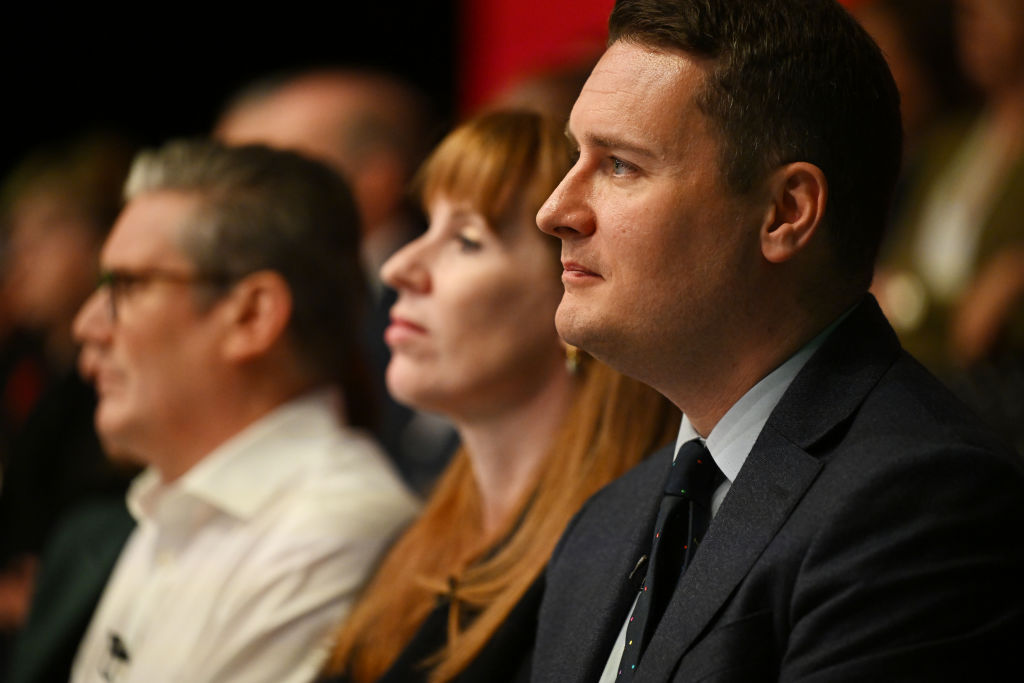Rachel Reeves is reportedly considering a 2p increase in income tax, taking the basic rate from 20 to 22 per cent. That might seem modest by historic standards, yet it would be a clear breach of Labour’s manifesto promise, made just over a year ago, not to raise any of the big three taxes. More importantly, it underscores the scale of the structural pressures facing Britain’s public finances – pressures that cannot be addressed by minor tax tweaks alone. If Reeves truly wants to strengthen Britain’s economic foundations, she should turn her attention to welfare reform – not as a matter of cruelty but of common sense.
Britain’s welfare state has grown not only too large but indulgent, drifting from necessity into comfort
When William Beveridge published his famous report in 1942, he imagined a state that would slay five giants: want, disease, ignorance, squalor and idleness. His ambition was humane but modest – to guarantee a subsistence standard of living for those who fell on hard times. The state would provide a safety net, not a hammock.
Eighty years on, the welfare state he inspired has been swollen far beyond his conception. It now attempts to cushion almost every discomfort of modern life and has become inefficient and unsustainable.
After the war, the welfare state’s initial success was undeniable. The creation of the NHS (in its then limited form), the expansion of public education and the introduction of national insurance helped rebuild a nation battered by conflict. But over time, that success bred complacency – a creeping sense that the state, rather than the citizen, should carry primary responsibility when things go wrong. By the 1970s, welfare provision had metastasised into a vast intricate bureaucracy, addressing not only destitution but almost ever conceivable ‘need’.
Today, the United Kingdom devotes roughly 20 per cent of GDP to public social spending, quadruple what it spent in 1960. Yet the return on investment is questionable. A proliferation of overlapping benefits has created a system so complex it is often impenetrable. Bureaucracy consumes resources that could otherwise reach the genuinely needy. A culture of dependency has taken root, with once-temporary benefits becoming long-term substitutes for work and self-reliance.
Across Europe, the same pattern is visible. France and Italy spend about 30 and 25 per cent of GDP on social spending respectively, yet both wrestle with low growth, unemployment and crushing public debt.
By contrast, countries such as South Korea which spend barely 10 per cent of GDP on welfare, have achieved rapid economic and social progress by investing in education, family cohesion and putting an emphasis on personal responsibility. Singapore spends under 10 per cent of GDP on social programmes yet has strong outcomes through targeted assistance and a culture of self-reliance. A welfare state need not be enormous to be effective.
It is against this backdrop that Rachel Reeves prepares her Autumn Budget. The Treasury is straining under the weight of its promises. The public finances face a £22 billion shortfall, yet so far the Chancellor’s instinct has been to balance the books through higher taxes rather than leaner spending. The average taxpayer now contributes roughly £2,700 year towards welfare spending – a sum that ought to prompt reflection on whether the system remains fit for purpose.
There are early signs she may be moving in that direction. Anonymous right-wing X accounts have brought attention to the widespread exploitation of Motability cars, which are meant to be for the disabled. After a year of revelations, including that people with ailments as minor as ‘tennis elbow’ were qualifying for tax-payer funded cars, the Treasury is exploring measures to rein in the scheme.
Motability is funded by Personal Independent Payment (PIP). Because PIP eligibility has widened dramatically, and because assessments are rarely conducted face-to-face, claimants have learned to game the system by repeating certain buzzwords in telephone interviews. There has subsequently been an explosion in PIP claims and costs since the pandemic.
Originally designed to help those with serious disabilities, Motability now costs £2.8 billion annually of which £1 billion is from VAT and insurance tax exemptions. Reeves’s team is reportedly considering limiting those exemptions and restricting access to BMWs and Audis. The Times has been briefed that she will go no further for fear of angering Labour backbenchers.
Motability highlights the absurdity of a system that has drifted so far from Beveridge that it funds luxury vehicles for claimants whose disabilities are trivial or transient. A culture that treats welfare as a lifestyle perk cannot sustain itself.
Britain’s welfare state has grown not only too large but indulgent, drifting from necessity into comfort. That transformation has moral as well as fiscal consequences. It corrodes the idea that people have a duty to themselves and their communities – that self-sufficiency, not state reliance, should be the norm. By assuming responsibility for every risk, the state dulls the civic virtues of thrift, initiative and mutual help that once defined British life.
Reform is not a question of whether the vulnerable should be protected, but of how. A simpler, more focused welfare system would reduce bureaucracy and ensure that help reaches those who truly need it. Benefits should encourage work and independence, not passive reliance. Programmes like Motability should return to their original purpose: genuine assistance for people with serious disabilities who cannot use an ordinary vehicle.
The private sector and local communities can also shoulder more responsibility. Voluntary associations, charities and mutual aid societies once played a vital role in supporting those in need; they have been crowded out by the state. Reviving that spirit would build social capital and reduce pressure on the public purse. Encouraging private innovation in health and pensions could also introduce efficiency and choice. A life on benefits is rarely a fulfilled one. Welfare dependence erodes confidence, purpose and belonging, leaving people trapped in a life that harms them as much as it burdens the taxpayer.
Reeves’s Autumn Budget is a chance to decide. She can continue the familiar cycle of tax rises and timid tinkering, or she can tackle welfare reform. To cut waste and dependency would not be an act of ideological cruelty but one of national renewal. Beveridge warned that the welfare state must never become ‘a dole’, and that benefits should preserve ‘incentive, opportunity and responsibility’. Eight decades later, those words sound almost radical.







Comments